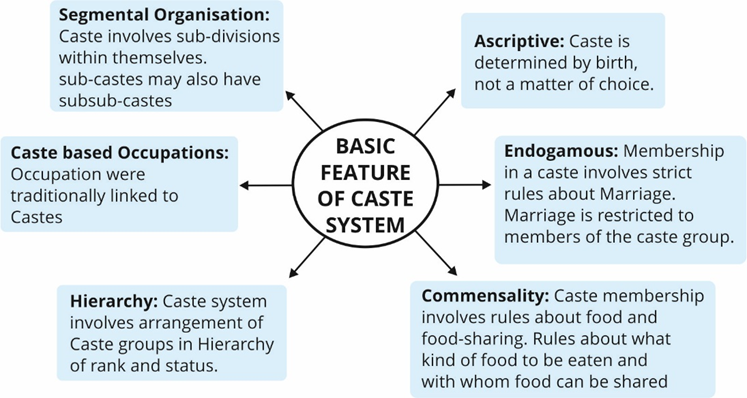Supreme Court Ends Caste-Based Discrimination in Prisons
Why in the news?
The Supreme Court declared caste-based prison labour assignments unconstitutional, emphasising prisoners’ right to dignity, equality, and banning manual scavenging in prisons across India.
Violation of Fundamental Rights:
- The court highlighted that caste-based labour assignments, like reserving menial tasks such as cleaning for marginalised groups (SC, ST, DNT) and cooking for higher castes, violate Articles 14 and 15 of the
- Such practices were deemed relics of colonial and pre-colonial mechanisms designed to dehumanise and degrade prisoners.
Manual Scavenging and Other Reforms:
- The judgement prohibits manual scavenging in prisons, stating that its ban applies within prison walls as well. Tasks such as cleaning septic tanks are no longer permitted.
- The court directed the deletion of caste-related information from prison registers and ordered that all discriminatory laws enacted before the Constitution be scrutinised and abolished.
- This landmark judgement emphasises the dignity of prisoners and dismantles a long-standing system of caste-based bias within the Indian penal system.
Right to Equality: Meaning and Significance
- The Right to Equality is a fundamental human right enshrined in the Indian Constitution, ensuring no discrimination based on arbitrary criteria such as race, caste, sex, religion, etc.
- This right, covered under Articles 14-18, promotes fairness, inclusivity, and justice for all individuals within India.
Provisions Under the Indian Constitution:
- Article 14: Ensures equality before the law and equal protection of the laws for everyone, regardless of citizenship.
- Article 15: Prohibits discrimination on grounds of religion, race, caste, sex, or place of birth.
- Article 16: Guarantees equal opportunity in public employment.
- Article 17: Abolishes untouchability in any form.
- Article 18: Abolishes titles of nobility except for military and academic distinctions.
Fundamental Rights (Part-1) – Key Points
- Enshrined in Part III: Articles 12-35 of the Indian Constitution.
- Magna Carta Comparison: Part III described as India’s “Magna Carta,” similar to the 1215 English Charter of Rights.
- Six Fundamental Rights:
- Right to Equality (Articles 14-18)
- Right to Freedom (Articles 19-22)
- Right Against Exploitation (Articles 23-24)
- Right to Freedom of Religion (Articles 25-28)
- Cultural and Educational Rights (Articles 29-30)
- Right to Constitutional Remedies (Article 32)
- Right to Property: Initially a Fundamental Right (Article 31); removed in 1978, now a legal right (Article 300-A).
- Protection against laws violating rights: Article 13 invalidates any law infringing Fundamental Rights.
- Judicial Review: Amendments can be challenged if they violate the Constitution’s “basic structure” (Kesavananda Bharati case, 1973).
- Writ Jurisdiction: Courts can issue writs (habeas corpus, mandamus, etc.) for rights enforcement.
Features of Fundamental Rights:
- Guaranteed by Constitution: Protected for all citizens, with some rights extended to foreigners.
- Not Absolute: Rights are subject to reasonable restrictions.
- Justiciable: Individuals can move courts for rights enforcement.
- Suspension: Rights can be suspended during National Emergency (except Articles 20 and 21).




